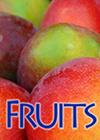The clove tree and its products (clove bud, clove oil, eugenol): prosperous today but what of tomorrow’s restrictions?
P. Danthu, R. Simanjuntak, F. Fawbush, J. M. Leong Pock Tsy, G. Razafimamonjison, M. M. Abdillahi, Michel Jahiel, E. Penot
求助PDF
{"title":"The clove tree and its products (clove bud, clove oil, eugenol): prosperous today but what of tomorrow’s restrictions?","authors":"P. Danthu, R. Simanjuntak, F. Fawbush, J. M. Leong Pock Tsy, G. Razafimamonjison, M. M. Abdillahi, Michel Jahiel, E. Penot","doi":"10.17660/TH2020/75.5.5","DOIUrl":null,"url":null,"abstract":"Context of the study - The clove tree, farmed primarily in Indonesia, Madagascar, the Comoros, Tanzania and Sri Lanka, produces two major commodities: the clove and the eugenol-rich essential oil At the present time, the clove caters to the spice market, which is concentrated in India, as well as the market for the traditional Indonesian cigarette, the kretek, which accounts for 70% of world output The essential oil extract is exploited for its various properties: plasticising, anaesthetic, antimicrobial and organoleptic, which are deployed in the cosmetics, dentistry and agro-food sectors Several innovative, often cutting edge, applications are currently being researched, taking advantage of its profile as an organic product derived from green chemistry, implicated in the agroecology approach The main areas concerned are medicine, agri-food and agronomy Aim of the study - We are considering a series of plausible hypotheses of evolutions in demand on the international market, to assess how the development of current and potential applications might steer the market in the coming years and decades We are exploring their impact on the offer of producing countries, and therefore, on the incomes of local farmers and distillers Methodology - Our approach is based on an extensive bibliography Remarkable results - The clove sector is under threat from various sources: American cigarette manufacturers' offensive to conquer the vast Indonesian market, disregard for quality, inter-annual variation of production, competition between clove producing countries, as well as substitute products, impact of oil extraction methods on firewood consumption A few forward-looking elements are given, particularly concerning the impact of climate change and the COVID-19 pandemic Conclusion - These threats need to be anticipated and taken into consideration by all actors of the sectors for the clove and its products to continue providing a reliable source of income to thousands of small farmers in the producing countries © ISHS 2020","PeriodicalId":12492,"journal":{"name":"Fruits","volume":"75 1","pages":"224-242"},"PeriodicalIF":0.5000,"publicationDate":"2020-09-25","publicationTypes":"Journal Article","fieldsOfStudy":null,"isOpenAccess":false,"openAccessPdf":"","citationCount":"9","resultStr":null,"platform":"Semanticscholar","paperid":null,"PeriodicalName":"Fruits","FirstCategoryId":"97","ListUrlMain":"https://doi.org/10.17660/TH2020/75.5.5","RegionNum":4,"RegionCategory":"农林科学","ArticlePicture":[],"TitleCN":null,"AbstractTextCN":null,"PMCID":null,"EPubDate":"","PubModel":"","JCR":"Q4","JCRName":"HORTICULTURE","Score":null,"Total":0}
引用次数: 9
引用
批量引用
Abstract
Context of the study - The clove tree, farmed primarily in Indonesia, Madagascar, the Comoros, Tanzania and Sri Lanka, produces two major commodities: the clove and the eugenol-rich essential oil At the present time, the clove caters to the spice market, which is concentrated in India, as well as the market for the traditional Indonesian cigarette, the kretek, which accounts for 70% of world output The essential oil extract is exploited for its various properties: plasticising, anaesthetic, antimicrobial and organoleptic, which are deployed in the cosmetics, dentistry and agro-food sectors Several innovative, often cutting edge, applications are currently being researched, taking advantage of its profile as an organic product derived from green chemistry, implicated in the agroecology approach The main areas concerned are medicine, agri-food and agronomy Aim of the study - We are considering a series of plausible hypotheses of evolutions in demand on the international market, to assess how the development of current and potential applications might steer the market in the coming years and decades We are exploring their impact on the offer of producing countries, and therefore, on the incomes of local farmers and distillers Methodology - Our approach is based on an extensive bibliography Remarkable results - The clove sector is under threat from various sources: American cigarette manufacturers' offensive to conquer the vast Indonesian market, disregard for quality, inter-annual variation of production, competition between clove producing countries, as well as substitute products, impact of oil extraction methods on firewood consumption A few forward-looking elements are given, particularly concerning the impact of climate change and the COVID-19 pandemic Conclusion - These threats need to be anticipated and taken into consideration by all actors of the sectors for the clove and its products to continue providing a reliable source of income to thousands of small farmers in the producing countries © ISHS 2020
丁香树及其产品(丁香芽、丁香油、丁香酚):今天繁荣,但明天的限制是什么?
研究背景-丁香树主要在印度尼西亚、马达加斯加、科摩罗、坦桑尼亚和斯里兰卡种植,生产两种主要商品:丁香和富含丁香酚的精油。目前,丁香迎合了集中在印度的香料市场,以及印尼传统香烟kretek的市场,占世界产量的70%精油提取物因其各种特性而被开发:增塑、麻醉、抗菌和感官,这些特性被应用于化妆品、牙科和农产品食品行业。目前正在研究一些创新的、通常是前沿的应用,利用其作为源自绿色化学的有机产品的形象,涉及农业生态学方法。主要涉及的领域是医学、农业食品和农学。研究目的-我们正在考虑国际市场需求演变的一系列合理假设,评估当前和潜在应用程序的开发如何在未来几年和几十年引导市场。我们正在探索它们对生产国报价的影响,因此,关于当地农民和酿酒商的收入方法论-我们的方法基于广泛的参考书目显著的结果-丁香行业正受到各种来源的威胁:美国香烟制造商征服庞大的印尼市场的攻势、对质量的漠视、生产的年间变化、丁香生产国之间的竞争,以及替代产品、采油方法对木柴消耗的影响。给出了一些前瞻性的元素,特别是关于气候变化和新冠肺炎大流行的影响结论-丁香及其产品行业的所有参与者都需要预见和考虑这些威胁,以继续为生产国的数千名小农提供可靠的收入来源©ISHS 2020
本文章由计算机程序翻译,如有差异,请以英文原文为准。


